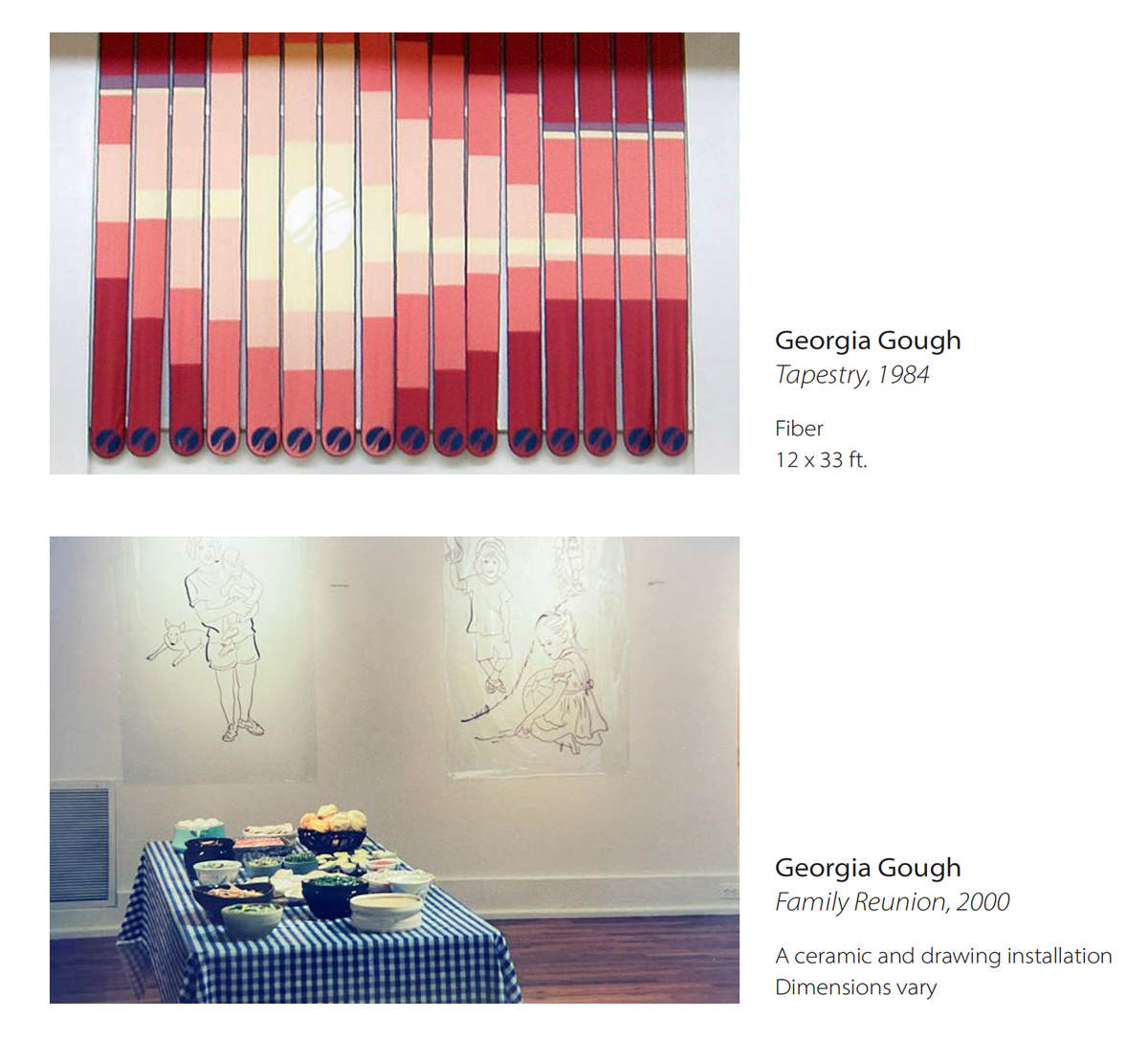Georgia "Billie" Gough

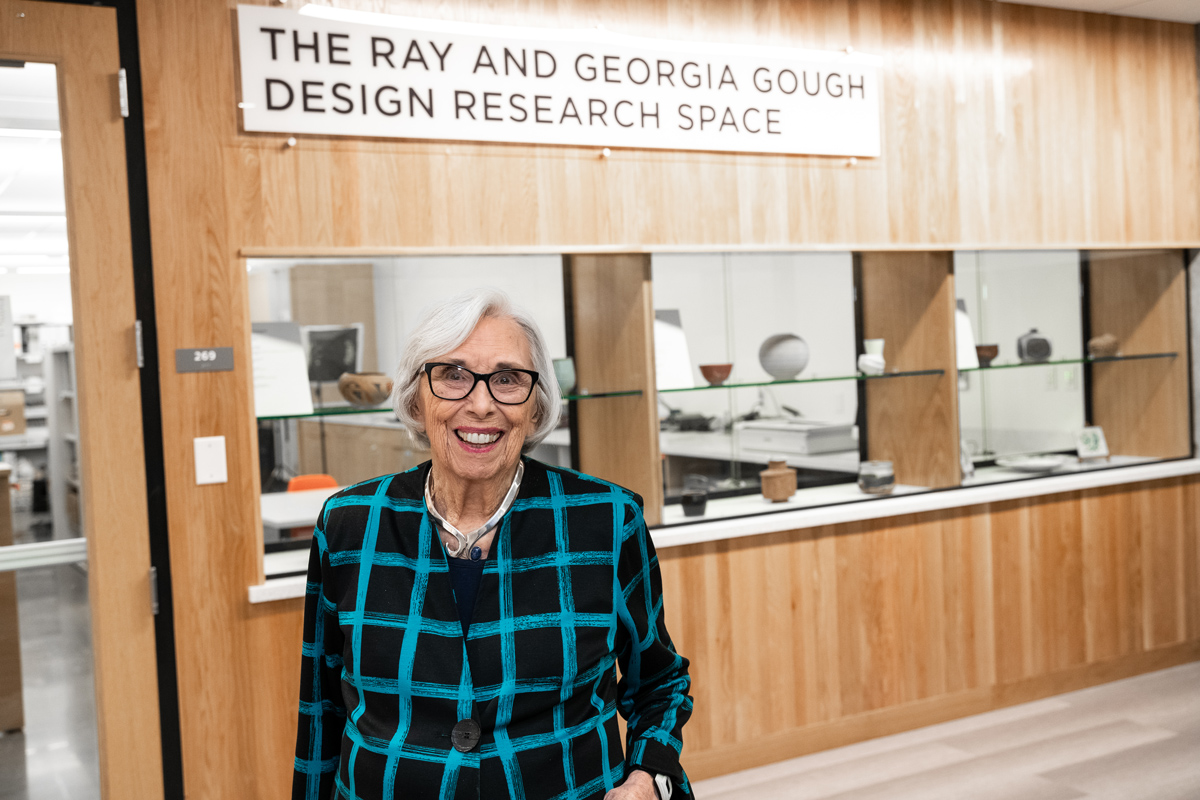
In Memoriam: Georgia Belle “Billie” Leach Gough
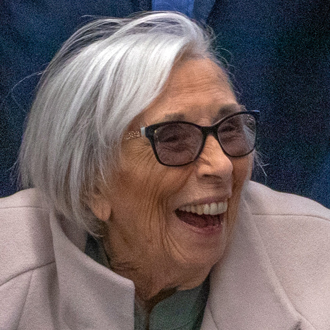 UNT alumna and Professor Emeritus Georgia Belle "Billie" Leach Gough (M.S. '46) remained
dedicated to supporting her alma mater more than 78 years after graduation. Billie
died in Denton, Texas, at the age of 103 on July 24, 2024.
UNT alumna and Professor Emeritus Georgia Belle "Billie" Leach Gough (M.S. '46) remained
dedicated to supporting her alma mater more than 78 years after graduation. Billie
died in Denton, Texas, at the age of 103 on July 24, 2024.
Interview from 2019
"My husband and I started our careers there," says Gough. "UNT really helped us grow.
We never had any children, so UNT is our family."
After earning a master's degree from UNT in 1946, Gough was a UNT professor for 25 years and continued to support the school into her retirement.
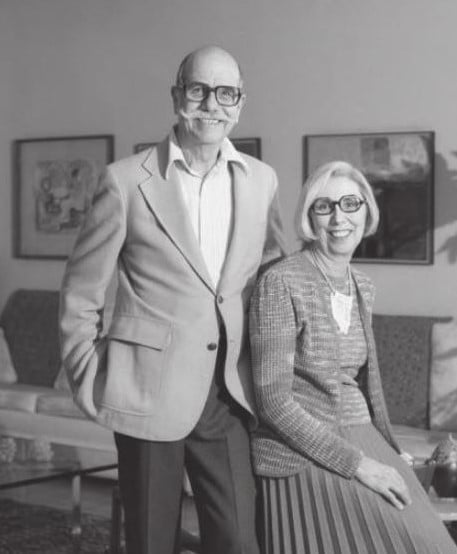 She and her late husband, UNT alumnus C. Ray (B.A. ’40 and M.S. ’41), b. 1920–d. 2015, consistently contributed to the university for more than 35 years,
supporting areas such as the UNT Alumni Association, UNT Libraries and the Inspire
UNT Fund. However, they are most dedicated to the College of Visual Art and Design,
having two scholarships in their name and a lecture series named in honor of her husband.
Ray ('40, '41 M.S.) and Georgia ('46 M.S.) both hold the distinction of professor
emeritus of art at UNT, an honor bestowed upon a professor who has retired from a
tenured position of at least 10 years with a record of distinguished service. In 2004,
the Goughs were recognized with UNT's Green Glory Award for exceptional service to
the university.
She and her late husband, UNT alumnus C. Ray (B.A. ’40 and M.S. ’41), b. 1920–d. 2015, consistently contributed to the university for more than 35 years,
supporting areas such as the UNT Alumni Association, UNT Libraries and the Inspire
UNT Fund. However, they are most dedicated to the College of Visual Art and Design,
having two scholarships in their name and a lecture series named in honor of her husband.
Ray ('40, '41 M.S.) and Georgia ('46 M.S.) both hold the distinction of professor
emeritus of art at UNT, an honor bestowed upon a professor who has retired from a
tenured position of at least 10 years with a record of distinguished service. In 2004,
the Goughs were recognized with UNT's Green Glory Award for exceptional service to
the university.
"I love the friendliness, quality of education and the overall atmosphere," says Gough. "There's nothing like being on campus."
Gough donated $150,000 to establish the Ray and Georgia Gough Research Fund in the areas of interiors, fibers, ceramics, jewelry, metals, and related fields.
"This gift is important because it is potentially eligible for the Texas Research Incentive Program," says David Wolf, vice president for advancement. TRIP is a state-matching grant program that supports the university's research and research-enhancing activities. "We are grateful to donors like Georgia Gough for her continued support and dedication to UNT and its students."
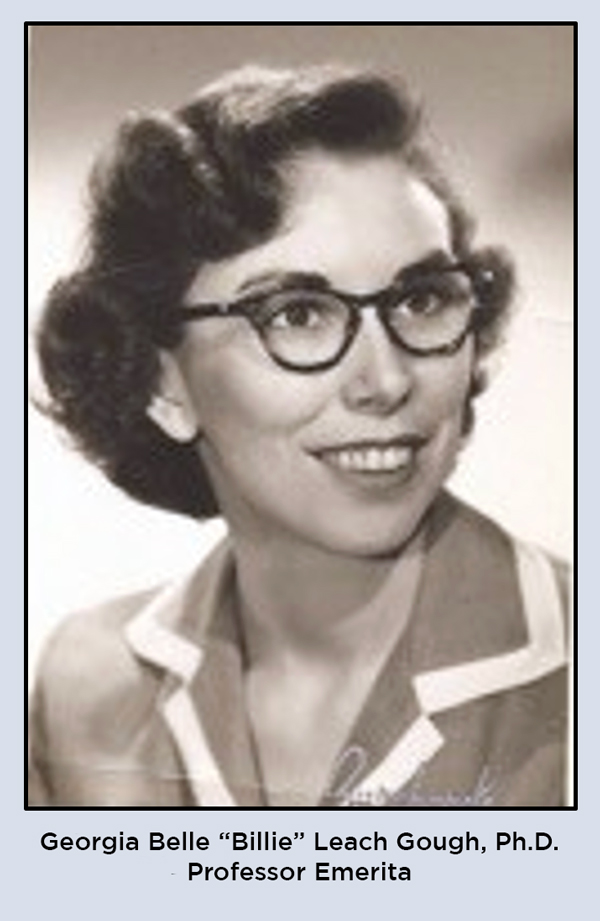
Billie Gough, artist, educator, scholar, philanthroper.
"UNT is a place where your gift will grow and continue to make an impact that lasts forever," says Gough.
She earned her bachelor’s degree at Central State College in Oklahoma and then taught in Oklahoma City and Denison while working on her master’s in arts at UNT. In 1947, Cora Stafford, the formidable director of the art department in Denton, hired Gough, when there were only five other faculty members in the entire department in what was then called North Texas State College. She taught as a professor of ceramics at the school for 25 years and served on the board at the Greater Denton Arts Council for 12 years. She founded the annual “Materials Hard + Soft” exhibition in 1987.
Stafford eventually changed Gough’s life and career by having her teach ceramics — she had to go back to school to learn the craft. For her ceramics classes at UNT, Gough and her students had to carry their clay pieces to be fired in a kiln in an old powerhouse across campus — a couple of blocks away from their studio.
In 2019, UNT opened its College of Visual Arts and Design Building. Inside the $70 million high-tech facility is the Ray and Georgia Gough Design Research Space.
Billie taught at UNT until her retirement in 1975, when she married Ray, who had helped create UNT’s Interior Design program. Retirement did not end their involvement in the arts. UNT is home to the Goughs’ extensive art collection and Ray’s collection of color slides taken on the pair’s many trips through Europe, Asia and the Middle East.
Ray received his bachelor's degree in art from UNT in 1940 and then went on to receive his master's in 1941. He served in the Navy for four years during World War II. After the war, Ray attended the Illinois Institute of Technology, where he refined his interior design skills under the guidance of notable figures such as Ludwig Mies van der Rohe, one of the most renowned names in modernist architecture. Ray returned to Denton as a professor in 1950, where he would remain until 1979. He is considered the founder of the Interior Design program at the College of Visual Arts and Design.
Their generosity is recognized through the Ray and Georgia Gough Research Fund, the Ray and Georgia Gough Fund for Design Education, the Georgia and Ray Gough Scholarship, and the Ray and Georgia Gough Design Research Space.
Billie was honored with the Green Glory Award for Exceptional Service in 2004 and served on the Advisory Board for the College of Visual Arts and Design, and played a key role in strengthening the arts at UNT.
Art and Seek article, 2020: Georgia Gough, A Major Influence on Denton's Art Scene, Turns 100
